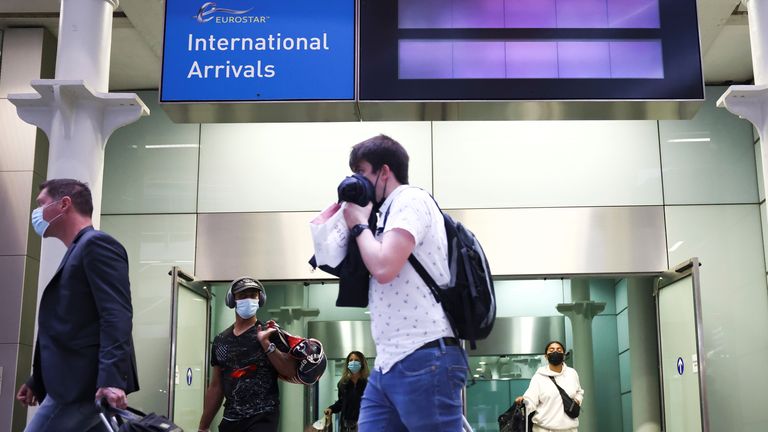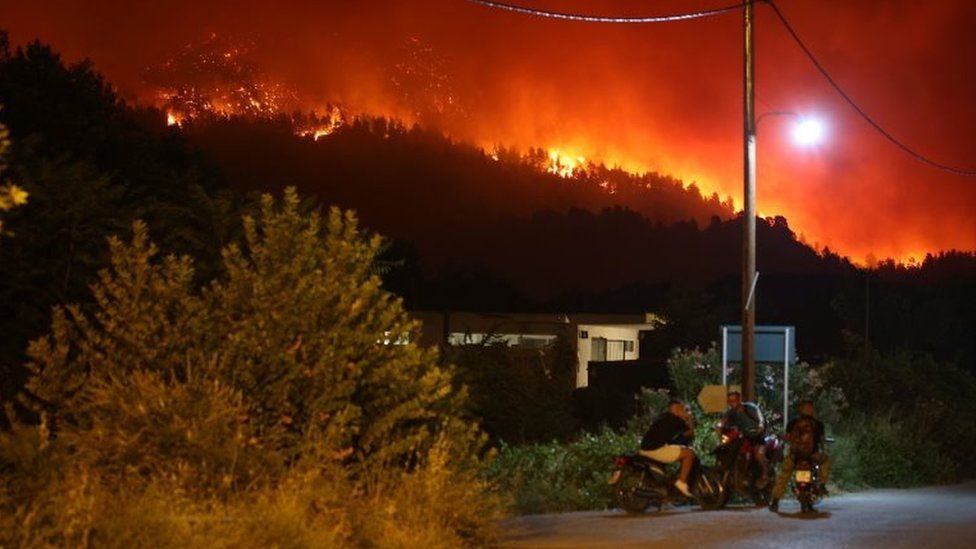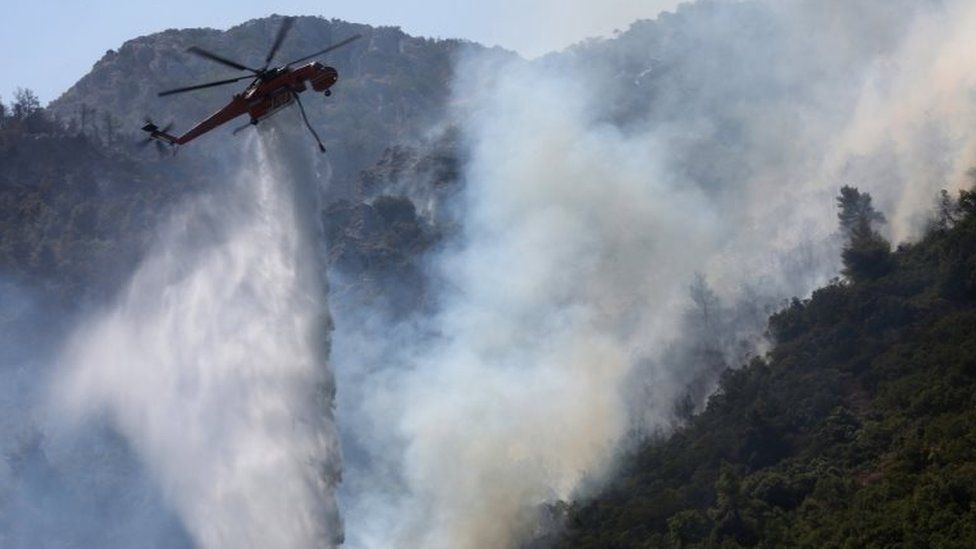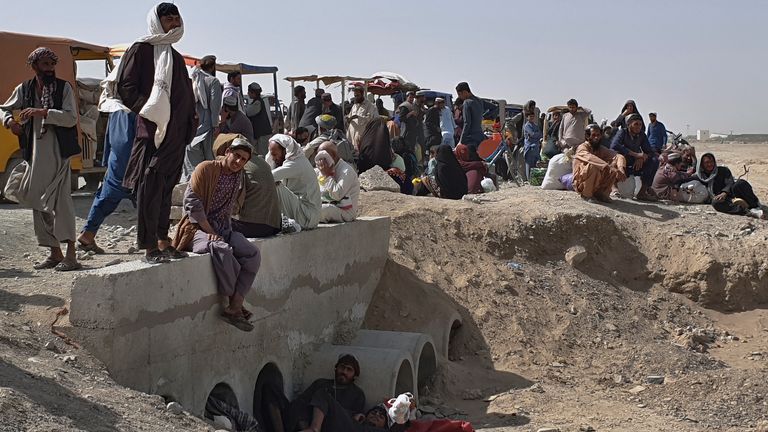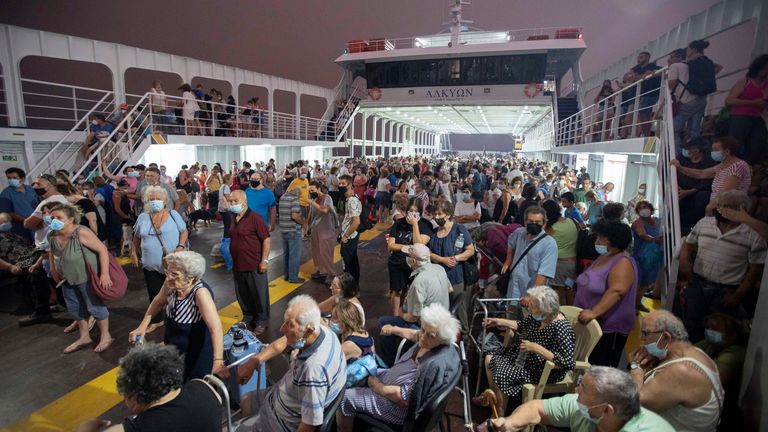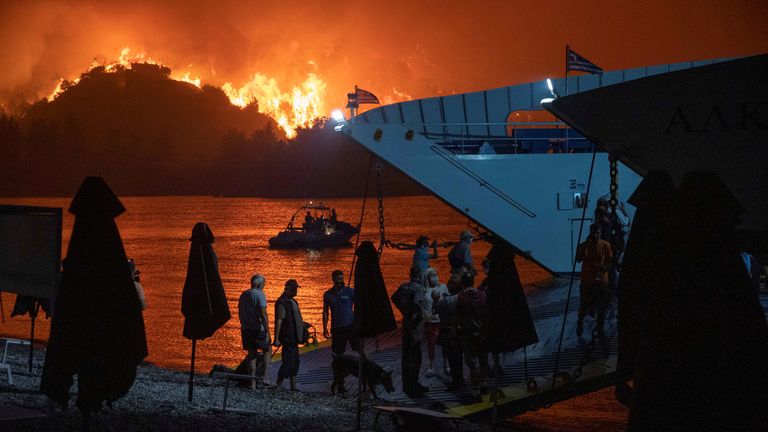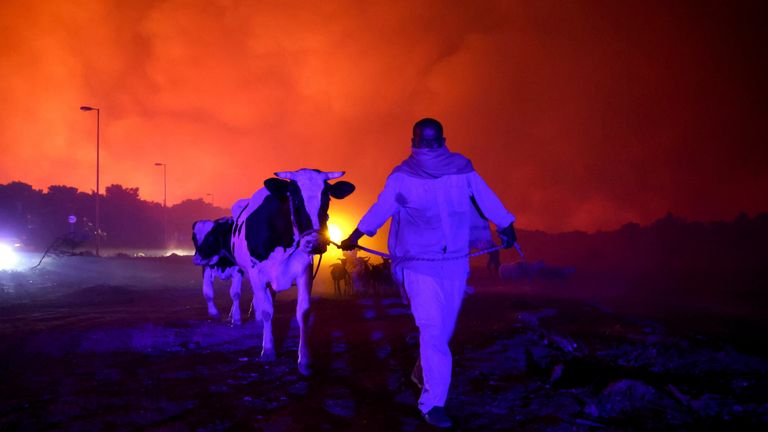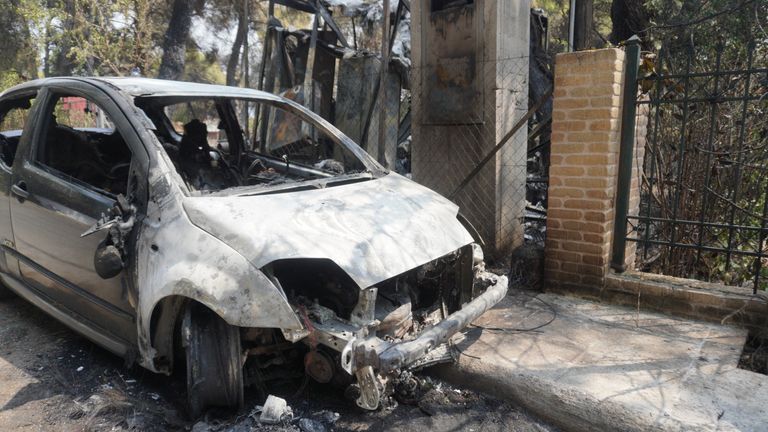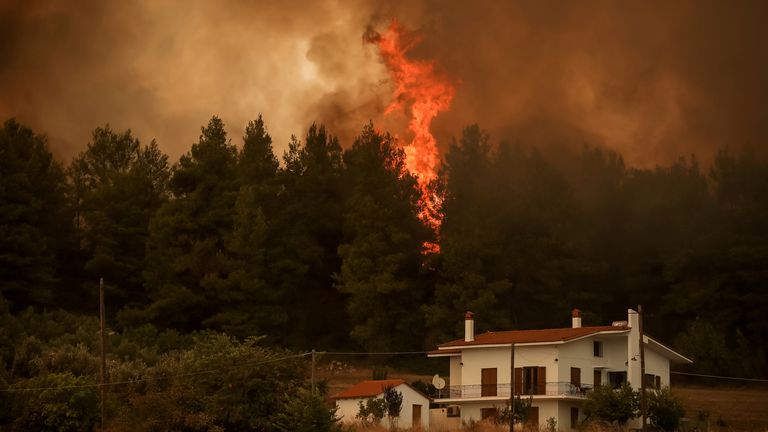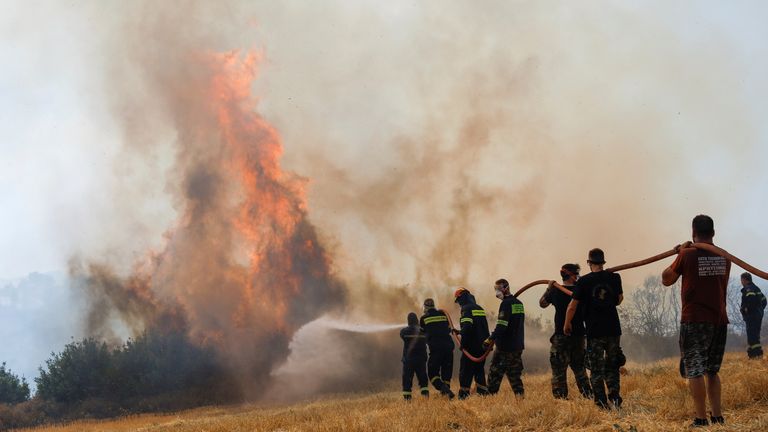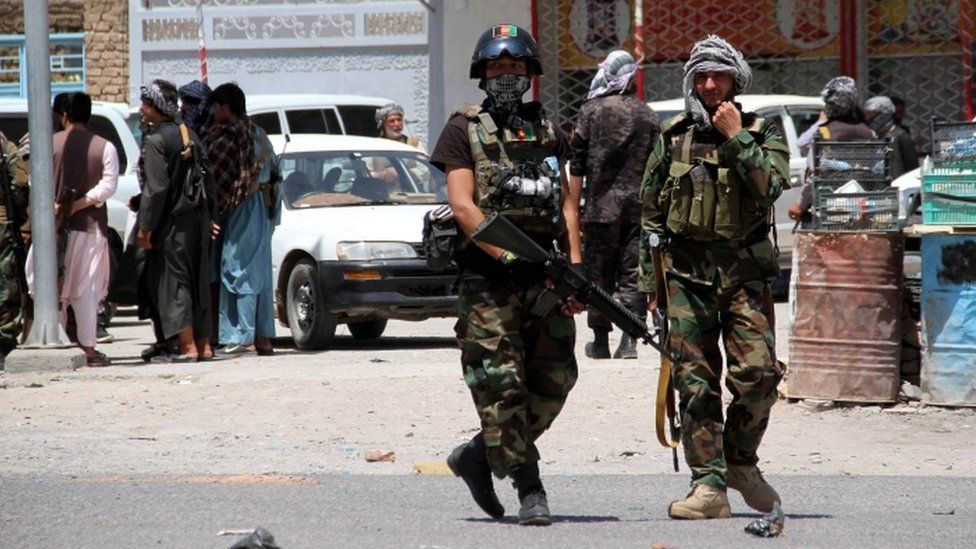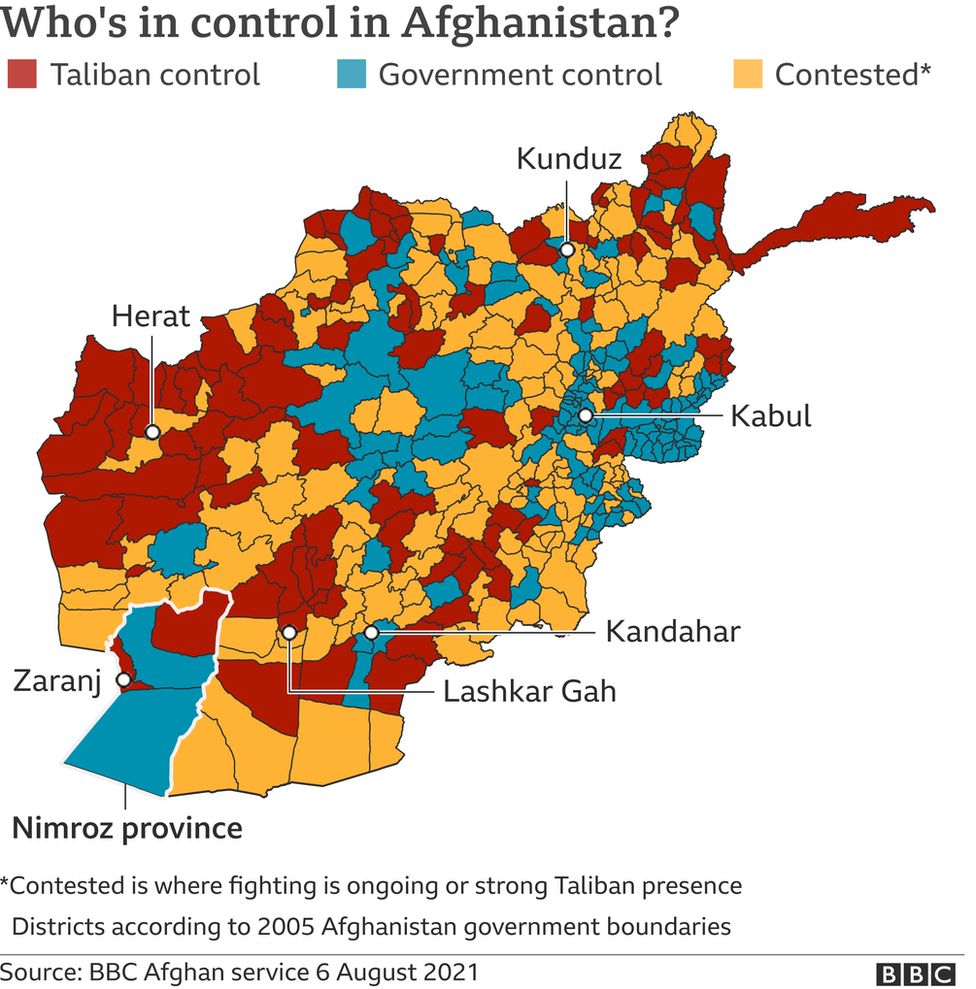
The Taliban have captured two provincial capitals and descended on several others across Afghanistan, making significant advances in their campaign for control of the country as the US and UK warn their citizens to leave.
The Taliban on Friday captured its first local capital, Zaranj in the country’s southwestern Nimroz province, without any strong resistance and sent Afghan officials and armed forces fleeing into neighbouring Iran.
This weekend, the insurgents also over-ran Sheberghan, the capital of northern Jowzjan province, a strategic and symbolic gain. Jowzjan is the stronghold of Abdul Rashid Dostum, a powerful anti-Taliban warlord who until last year served as vice-president to Ashraf Ghani.
Other provincial capitals, including Lashkar Gah, Kandahar and Kunduz, are under siege. The Taliban, who have already swept through large swaths of the countryside, are targeting several strategic cities following the Biden administration’s decision to pull out remaining US forces by the end of this month.
Analysts warn that the escalating violence could result in a protracted civil war, impending break-up of the country or the Taliban overrunning the national capital Kabul.
The Islamist group on Friday assassinated Dawa Khan Menapal, head of the government’s media centre, in the capital and also claimed responsibility for a deadly attack last week that targeted the defence minister, who was not present.
While some officials denied Sheberghan had completely fallen to the Taliban, multiple sources confirmed the insurgents had gained control of the city and much of the province. After several days of clashes, the Taliban reportedly used water canals to breach the city’s defensive lines in the dead of the night.
One local businessman told the Financial Times that there was now “no resistance” and social media videos reportedly showed Taliban forces inside Dostum’s palace.
US forces have carried out air strikes in a bid to deter the Taliban and boost the morale of Afghan national security forces, but an American defence official said the strikes amounted to only “a handful” each day.
The US embassy in Kabul on Saturday said US citizens should leave Afghanistan “immediately”. “The order for American citizens to leave is an indication of the deteriorating security situation,” the US defence official told the Financial Times.
The UK Foreign Office has also updated its travel advice to urge all citizens to leave the country.
Joe Biden ordered the drawdown of US troops to bring America’s longest-running war to a close, upholding a deal the Trump administration struck with Taliban.
Both presidents took the decision against the advice of some US military officials, who warned pulling out troops risked emboldening the Taliban and damaging fragile gains in Afghanistan.
The Biden administration has been making a last-ditch effort to secure a negotiated political settlement that would give the Taliban a role in the government rather than pursue its advantage on the battlefield, but to little effect.
“These Taliban actions to forcibly impose its rule are unacceptable and contradict its claim to support a negotiated settlement in the Doha peace process,” the US said.
The Taliban came to power in Afghanistan in the late 1990s. They were deposed by a US invasion in response to the 9/11 attacks, which were conducted by al-Qaeda, a jihadi group that established ties to the Islamist Taliban militancy.
On Friday, Deborah Lyons, the UN special representative for Afghanistan, said at least 104 civilians had been killed and 403 wounded in Lashkar Gah since late July.
Civilians in the city are trapped in the close-range combat between the Taliban and besieged Afghan forces, with heavy bombardment from US and Afghan air forces adding to the danger.
https://news.google.com/__i/rss/rd/articles/CBMiP2h0dHBzOi8vd3d3LmZ0LmNvbS9jb250ZW50LzdjYjYzMGFjLTBkNWEtNGU3Yi05NTA3LWRhNWMwNzI1OTYzMdIBAA?oc=5
2021-08-08 06:11:15Z
CAIiEBEpKJU_dTqcDL48j2dDhWgqGAgEKg8IACoHCAow-4fWBzD4z0gw_fCpBg

